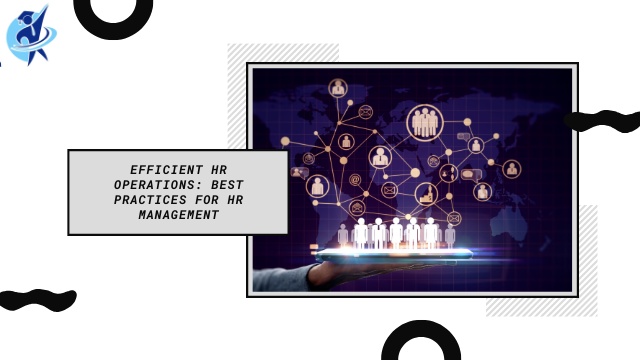Introduction: Human Resources (HR) management is a critical function within organizations, responsible for overseeing various aspects of employee welfare, recruitment, training, and development. In today’s dynamic business environment, efficiency in HR operations is essential for enhancing productivity, fostering employee satisfaction, and driving organizational success. By implementing best practices, HR professionals can streamline processes, optimize resources, and deliver value-added services to both employees and the organization. This article explores some key strategies for efficient HR operations.
- Automation of Routine Tasks: One of the most effective ways to improve HR efficiency is by automating repetitive and time-consuming tasks. Leveraging HR software solutions for tasks such as payroll processing, leave management, and employee data management can significantly reduce manual workload and minimize errors. Automation not only saves time but also ensures consistency and compliance with relevant regulations.
- Centralized Data Management: Centralizing employee data in a secure and accessible manner is crucial for efficient HR operations. Implementing a robust Human Resource Information System (HRIS) enables HR professionals to store, organize, and retrieve employee information efficiently. A centralized database facilitates quick access to critical data, simplifies reporting, and enhances decision-making processes.
- Standardization of Processes: Establishing standardized processes and workflows ensures consistency and eliminates ambiguity in HR operations. Documenting procedures for recruitment, onboarding, performance management, and other HR functions helps streamline operations and reduce errors. By adhering to standardized processes, HR teams can improve efficiency, enhance communication, and maintain compliance with company policies and regulations.
- Self-Service Portals for Employees: Empowering employees with self-service tools can significantly reduce the administrative burden on HR teams. Self-service portals allow employees to access and update their personal information, submit leave requests, view pay stubs, and enroll in training programs independently. By providing employees with autonomy over certain HR processes, organizations can improve efficiency, enhance employee engagement, and foster a culture of transparency and accountability.
- Continuous Learning and Development: Investing in the professional development of HR staff is essential for maintaining efficiency and staying abreast of industry trends and best practices. Offering training programs, workshops, and certifications not only enhances the skills and capabilities of HR professionals but also enables them to implement innovative solutions and drive process improvements within the organization.
- Regular Performance Reviews and Feedback: Regular performance reviews and feedback sessions are crucial for identifying areas of improvement and addressing challenges in HR operations. By soliciting feedback from employees, managers, and other stakeholders, HR teams can identify pain points, implement corrective measures, and continuously enhance their service delivery. Performance reviews also provide an opportunity to recognize and reward high-performing employees, fostering a culture of appreciation and motivation.
Conclusion: Efficient HR operations are essential for optimizing organizational performance, fostering employee satisfaction, and driving business success. By adopting best practices such as automation, centralized data management, standardization of processes, self-service portals, continuous learning, and performance feedback, HR professionals can streamline operations, improve productivity, and deliver value-added services to the organization. Embracing innovation and leveraging technology are key to staying ahead in today’s competitive landscape.
“Discover your HR potential at Next Innovation Asia, Chennai’s top HR Training Institute. Gain certified training, essential skills, and career support. Take the next step towards a rewarding HR profession today!”

